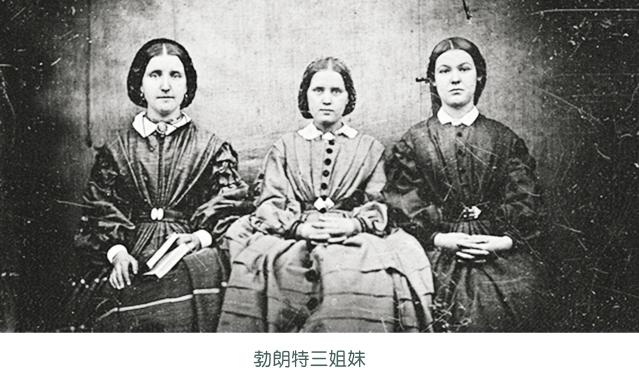艾米丽·勃朗特:“我没有怯懦的灵魂”
2018-01-05ByRonCharles
By Ron Charles
Even the light of 200 birthday candles couldnt pierce the gloom of Wuthering Heights. But the fire that burned within Emily Bront? roars across the centuries.
How remarkable that on the bicentennial1 of her birth, this reclusive woman should still be crying at our window like Catherine, “Let me in—let me in! Im come home!”
The younger sister of Charlotte, Emily was born on July 30, 1818, in Yorkshire, England, to Maria Branwell, who died just a few years later, and Patrick Bront?, a parish priest. Together with her two sisters, Emily stoked a furnace of creativity unique in the annals of literary history.2 The children wrote fantastical stories together, spinning imaginary worlds of romantic and military adventure.
《呼嘯山庄》堪称英语文学史上的一部旷世奇作,冰冷寂寥的漫漫荒野、永无止境的残酷黑暗、肆意挥洒的爱恨情仇……尽管这部作品如今被视为难以超越的佳作,在首次出版的年代里却备受争议与抨击,而作者艾米丽·勃朗特那充满遗憾与寂寥的短暂人生也令后人唏嘘不已。一生仅一部小说,艾米丽似乎将生命中所有炽热的情感与能量都倾注于这片阴冷的荒野,用超越时代与世俗的浪漫奇想编织出了一段飞扬跋扈的痴狂虐恋。在她二百周年诞辰之际,我们仍然怀念着她,怀念着她在文学史上书写的那笔优美凄绝的永恒。

Only poetic remnants of that juvenilia survive today, but during their brief lives, each of the Bront? sisters managed to publish at least one novel, and none of them generates more cultish devotion than Wuthering Heights.3 Yes, Charlottes Jane Eyre may have more readers, but the tale of young Catherine and Heathcliff, the mysterious bad boy who is really bad, remains the most feverish love story in English literature.
Given that blaze of fury and passion, filmmakers have been drawn to Bront?s bleak moors as inexorably4(and disastrously) as Catherine is attracted to Heathcliff. Everyone from Laurence Olivier to Timothy Dalton to Ralph Fiennes has taken a stab at “that devil.” In 2015, the Lifetime network set Wuthering High School in Malibu, which is not so much an adaptation as a desecration5. Perhaps the plot is simply too static and vast to capture on screen, which may be why Kate Bushs otherworldly single “Wuthering Heights” (1978) remains the best homage.6

The books fame was hardly preordained. Published in 1847 under the masculine pseudonym Ellis Bell, Wuthering Heights struck its first readers as “a perfect misanthropists7 heaven.” Early reviewers called it “strange,” “disagreeable,” “baffling,” “disjointed”and even “inexpressibly painful.” All true, but they made that sound like a bad thing. One reviewer was particularly distressed by the novels dismal gloominess. “Never was there a period in our history,” he concluded, “when we English could so ill afford to dispense with sunshine,” which sounds like he was that guy who walks up to women and says, “Come on, girl: Give us a smile!”
For sure, Emily was not prone to giddiness8. But despite the extraordinary fame of her single novel, she remains obscured by fog, which only makes her more attractive for our own projected fantasies of savage romantic abandon. She was, reportedly, shy and private. A family member claimed she rarely left the house except for church or to walk alone. Our impression of her is further clouded by Charlottes heavy-handed efforts to tidy up her little sisters reputation after she died in 1848. In a perplexing preface to the second edition of Wuthering Heights, Charlotte praised the novel—“We seem at times to breathe lightning”—while also questioning the wisdom of creating a character like Heathcliff. She went on to suggest that Emily was not a talented artist so much as a natural genius, “a native and nursling of the moors” who worked “in a wild workshop, with simple tools, out of homely materials.” Its a surprisingly chauvinistic9 argument, and factually untrue, given Emilys wide reading of Romantic literature—in English and German. At the peak of her sisterly betrayal, Charlotte wrote, “Having formed these beings, she did not know what she had done.”
In fact, we do not know what Emily has done.
Long after Wuthering Heights should look rusted by time and softened by familiarity, it remains an extravagantly turbulent novel.10 As a teenager, I found the story, with its nested narrators and tangled family tree, baffling and dull. Rereading it this month, though, I was dazzled by its preternatural11 modernity. The way the characters resist any moral explanation, the way the style flickers between gothic romanticism and flinty realism, and the way the incestuous plot festers past all endurance on that claustrophobic moor—its shockingly daring.12 Charlotte didnt have the nerve to leave her little Jane Eyre in the red-room for more than a few hours, but Wuthering Heights reads as though Catherine never came out.
The novelist Kate Mosse is one of many luminaries13 celebrating Emilys bicentennial with the Bront? Parsonage Museum in Haworth. She writes via email, “There is no apology within Wuthering Heights, no attempt to make the story palatable14 or the characters likable or domestic, but instead it has an unashamed sense of its own purpose, its own self.”
Emily, after all, is the woman who wrote, “No coward soul is mine/No trembler in the worlds storm-troubled sphere.” And the characters she created are just as fearless, just as audacious15 in their disregard for what is expected, what is reasonable, what makes sense. Their relentless pettiness, their meanness, their physical and emotional abuse, including knife-throwing and dog-hanging—I dont deny the repulsiveness of any of that behavior; the story would make an effective Human Resources PowerPoint presentation on Disruptive Behavior Procedures. But romantic tragedy is cathartic16, not instructive. The wonder of Wuthering Heights is its exponential emotions: “such anguish in the gush of grief!”17

We know Catherine is doomed and Heathcliff is “a fierce, pitiless, wolfish man,” but how subversive, how bewitching such unbridled passion feels in our self-conscious age of transactional hookups and enlightened unions.18 No dating app would ever bring these two lovers together; no marriage algorithm would ever predict a happy future. And yet... “Hes more myself than I am,” Catherine cries. “Whatever our souls are made of, his and mine are the same.”
Such romantic fusion is a catastrophe that irradiates the realm of Wuthering Heights and leaves a blast area that should warn others away, but who can resist approaching that crater of heartache and feeling the heat that comes off these pages?19
In a poem dated 1843, Emily wrote:
Farewell then, all that love
All that deep sympathy;
Sleep on, Heaven laughs above—
Earth never misses thee.
Youre wrong, Emily. Two hundred years later, we still miss you.
盡管二百根生日蜡烛的火光也未能穿透《呼啸山庄》的幽暗气息,艾米丽·勃朗特内心的炽热火焰却蔓延了数个世纪,依旧熊熊燃烧。
不同寻常的是,在二百周年诞辰之际,这位避世隐居的女性仍旧如凯瑟琳那般在窗外大声呼喊:“让我进去——让我进去!我回家了!”
艾米丽是夏洛蒂的妹妹,于1818年7月30日出生在英格兰约克郡,其母玛丽亚·布兰韦尔在几年后就去世了,父亲帕特里克·勃朗特是一名教区牧师。艾米丽和她的两位姐妹一同在文学编年史上留下了独特的非凡创造。年少的她们一同写就充满奇想的故事,编织着一个个想象中的充满浪漫而大胆的冒险世界。
尽管勃朗特三姐妹年少时期的作品中仅有诗歌得以留存,但在她们短暂的人生中,每个人都至少有一部小说得以出版,而《呼啸山庄》便是其中受到最多狂热追捧的佳作。的确,夏洛蒂的《简·爱》或许拥有更多读者,但年轻的凯瑟琳和神秘而邪恶的希思克利夫之间的故事,依旧是英语文学史上一笔最为炽热的爱恋。
狂怒与激情交织成夺目的烈焰,勃朗特笔下阴冷的荒野以不可抵挡的(且灾难般的)魅力吸引着电影制作人,就如同书中的希思克利夫对凯瑟琳的吸引一样。劳伦斯·奥利维尔、蒂莫西·道尔顿和拉尔夫·费因斯都曾饰演过这位恶魔般的男主人公。2015年,Lifetime电视台还拍摄了电视电影《呼啸高中》,情节设定在现代的美国加州马里布市,但这并非一次成功的改编,更多的是对原著的亵渎。也许是由于这部作品情节中的画面过于静止和广阔,因而较难实现理想的荧屏呈现,于是歌手凯特·布什风格脱俗的单曲《呼啸山庄》(1978)便一直被视为对原著最好的致敬。
这本书的名气并非命中注定的。1847年,以男性假名埃利斯·贝尔为作者,《呼啸山庄》得以出版,被第一批读者视作“完美的厌世者的天堂”。早期的评论者将其形容为“奇特的”、“令人不快的”、“令人困惑的”以及“支离破碎的”,甚至是“充满无法言喻的痛苦的”。的确如此,但这些评价着实贬低了这部作品的价值。一位评论者尤其对这部小说阴郁的黑暗气息感到不快:“我们的历史进程中从未有过这样一个时期,”他总结道,“我们英国人承受不起没有阳光的日子。”这样的评价使他听起来如同一个走向女人的家伙,说着:“来吧,姑娘!给我一个微笑吧!”
毫无疑问,艾米丽的形象并不复杂。但尽管她唯一的小说极负盛名,她仍旧充满迷雾般的神秘色彩,这使她更具有吸引力,尤其是对于我们对残酷的爱恨情仇的幻想而言。据说,她是一个害羞而喜欢独处的人。一位家庭成员曾声称,她很少离开房间,除非是为了去教堂或出门独自散步。在艾米丽于1848年去世之后,夏洛蒂试图以颇为粗暴的方式梳理她的名声,而这使我们对艾米丽的印象更加模糊。在第二版《呼啸山庄》那篇令人费解的序言中,夏洛蒂赞扬了这部小说——“我们似乎时不时地呼吸着闪电”——与此同时,她也质疑了创造希思克利夫这一角色是否明智之举。她接着评价道,艾米丽并非有天赋的艺术家,而是一个自然的天才,“一个土生土长的荒野生灵,在野外工作坊中使用着至简的原始工具。”这是一种令人惊讶的沙文主义般的观点,而且并不符实,毕竟艾米丽曾阅读了大量英语和德语的浪漫主义文学。而这一姐妹间背叛的巅峰,便是夏洛蒂写道:“她创造了这些人物,却并不知晓自己究竟做了什么。”
实际上,我们并不知道艾米丽做了什么。
如今,《呼啸山庄》的魅力并未因时间的流逝而被锈蚀,或因其家喻户晓而变得温和,它仍旧是一部非常震撼人心的小说。在青少年时期,我曾觉得这部作品叙述者繁多、家谱图错综复杂,因而显得费解而无趣。而在本月重读此书,它那超乎寻常的现代性则令我赞叹不已。书中的主人公抗拒一切道德解释,叙述的风格兼具哥特式浪漫主义与冰冷的现实主义,乱伦情节在具有幽闭恐怖症气息的荒野之上溃烂、蔓延——这是令人震惊的大胆创作。夏洛蒂从未有过这般的勇气,她笔下的小简·爱从未在那红房间内停留超过几个小时,但《呼啸山庄》读起来就如同凯瑟琳在封闭的屋内从未离开。
小说家凯特·莫斯是在位于霍沃思的勃朗特故居博物馆庆祝艾米丽诞辰二百周年的杰出人物之一。她在邮件中写道:“《呼啸山庄》之中没有歉疚,没有任何使故事更可接受、使人物更讨人喜爱和符合世俗的尝试,但它有一种问心无愧的精神,只为诠释其自身。”
毕竟,艾米丽曾写道:“我没有怯懦的灵魂 /在世间的狂风急骤之处亦不战栗。”她所创造的人物皆是无畏的,他们勇敢地漠视着规则的、明智的、合理的一切。他们有着无止境的卑鄙和吝啬,对身体和情绪施加着双重虐行,包括挥舞锐器和残害动物——我并不否认这些行为的可憎之处;这个故事若是作为人力资源学中关于“破坏性行为规程”的幻灯片演讲展示内容,定是颇为合适的素材。但浪漫主义悲剧是宣泄式而非教益式的。《呼啸山庄》的非凡之处便在于其指数式增长的情绪发展:“悲伤的喷涌中是极度的痛苦!”
我们知道,凯瑟琳有着命中注定的厄运,而希思克利夫是一个“凶狠的、无情的、狼一般的男人”,但这般肆无忌惮的热情在如今这个矫揉造作的、充满交易般的恋情和开明的结合的时代里是多么具有颠覆性,多么令人着迷。没有哪个约会软件会让这两位恋人在一起,没有哪种婚姻算法会为他们的结合预测一个幸福的未来。然而……“他比我更像我自己,”凯瑟琳哭喊道,“无论我们的灵魂是由什么构成的,我与他有着同一个灵魂。”
这种浪漫的结合是一种灾难,它点亮了呼啸山庄这一方土地,并留下了一片极其危险的区域,使外物不得不避之千里,但又有谁能抗拒接近这布满心痛的火山口,体会这字里行间喷涌而出的炽热呢?
在一首1843年的诗作中,艾米丽写道:
永别了,所有的爱
所有深切的同情
沉睡吧,那大笑着的天堂——
人间从未思念你。
你错了,艾米丽。二百年后,我们仍然思念你。
1. bicentennial: 二百周年纪念。
2. furnace: 火炉,熔炉;annal: 记录,编年史。
3. remnant: 剩余部分,残余部分;juvenilia: 在艺术家形成成熟风格前于青少年時代创作的艺术、文学或音乐作品;cultish: 狂热的。
4. inexorably: 不可逆转地,不可阻挡地。
5. desecration: 亵渎神圣,侮辱神物。
6. otherworldly: 超俗的;single: 单曲;homage: 致敬,崇敬。
7. misanthropist: 厌世者,厌恶人类者。
8. giddiness: 眼花缭乱。
9. chauvinistic: 沙文主义的,本国(本民族)至上的。
10. extravagantly: 过度地;turbulent: 骚乱的,动荡的。
11. preternatural: 超乎寻常的,超自然的。
12. flinty: 强硬的,冷冰冰的;incestuous: 乱伦的;fester:恶化,溃烂;claustrophobic:导致幽闭恐怖症的,患幽闭恐怖症的。
13. luminary: 泰斗,杰出人物。
14. palatable: 合意的,可接受的。
15. audacious: 无畏的,大胆的。
16. cathartic: 情感宣泄的,精神发泄的。
17. exponential: 指数式增长的;gush: 涌流,喷出之物。
18. unbridled: 放肆的,不受约束的;transactional:交易型的,事务性的。
19. irradiate: 使生辉,使焕发;crater: 火山口。
